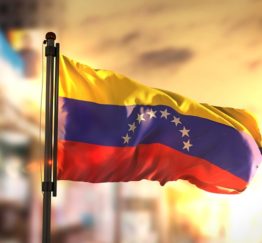The U.S. Treasury’s Office for Foreign Assets Control (OFAC) announced sanctions on six companies earlier this month for their continued financial support of Triliance Petrochemical Co. Ltd. (Triliance).
Triliance had been designated as a sanctioned entity by OFAC in January this year, for allegedly engaging in transactions worth hundreds of millions of dollars with the National Iranian Oil Company (NIOC). In the process, Triliance facilitated sales of Iranian petrochemical products that directly funded Tehran given that petrochemical sales remain a key revenue source for the Iranian government.
The six entities sanctioned by OFAC are Iran-based Zagros Petrochemical Company, UAE based Petrotech FZE, UAE-based Trio Energy DMCC, Hong Kong based Jingho Technology Co. Limited, Dynapex Energy Limited, and Dinrin Limited.
Petrotech is implicated as having transacted with other organizations and parties on behalf of Triliance via Zagros; Trio Energy was similarly an intermediary between Triliance and other parties for financial transactions involving the sale of tens of thousands of metric tons of petroleum products, while Jingho and Dynapex similarly funneled oil of Iranian origin into Asian countries. Finally, Dinrin Limited allegedly helped process millions of dollars in proceeds of Zagros’ sale of petroleum products to companies in Asia. In addition to these six organizations, The Department of State also sanctioned three principal executive officers of the sanctioned entities.
All told, the offending transactions are believed to have been worth millions of dollars, and hundreds of thousands of metric tons of Iranian origin petroleum. The subsequent sanctions imposed on these entities demonstrate the thoroughness with which OFAC enforces its policies and debarments. Of note is the fact that all organizations implicated in this case were allegedly involved in elaborate networks to obfuscate the trail of credit and products in an effort to circumvent the sanctions on. As a result, these entities now find themselves barred, which means no entity under American jurisdiction is allowed to transact with them or support them materially to any degree.
This action by OFAC, then, demonstrates yet again the necessity to remain compliant with OFAC regulations at all times, especially when working in sensitive and high-risk industries. In Treasury Secretary Steven T. Mnuchin’s own words, OFAC “remains committed to targeting those contributing to Iran’s attempts to evade U.S. sanctions by facilitating the illicit sale of Iranian petroleum products around the world.” Having proper export compliance and screening solutions in place, such as Descartes Visual Compliance, can help organizations screen against OFAC’s lists, as well as other restricted and denied party lists from governments and international bodies from around the world.





